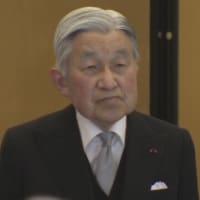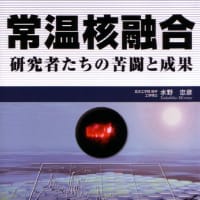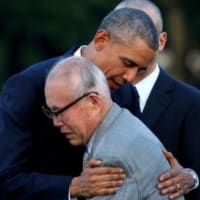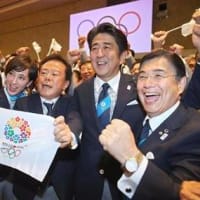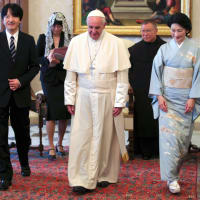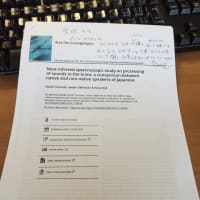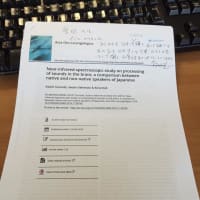原田武夫です。ミュンヘンからもう一つ。
へー、竹森俊平先生かぁ。。。
不思議な方ですよね、彼も。City of Londonからのお便りを引用します。今届きました
・・・
German-Japanese diplomacy focused on Greece
European visits expose financial precariousness
By Shumpei Takemori in Tokyo
European creditors involved in the confrontation with Greece have expended a lot of high-powered diplomacy on Japan in the last few months. My supposition is that a great deal of this is focused on how Japan would react to the International Monetary Fund in the case of a Greek default.
People tend to forget that Japan is the No. 2 contributor to the IMF after the US. So a lot of Japanese money is at stake if – as seems increasingly likely – Greece fails to repay its official loans. In contrast to China, which has a quota at the Fund smaller than that of the Netherlands and Belgium combined, the Japanese quota marginally exceeds Germany’s. All this is important in terms of Japanese finance outstanding to Greece. Although the IMF likes to be seen as a senior creditor, one needs to remember that, if ever Greece defaults on official loans, the first and most likely candidate for non-repayment is the IMF.
Japan’s stake in the Greek loan morass is out of all proportion to the country’s involvement in the misguided arrangements that brought it about. In 2010, when the Greek crisis came to the surface, the Europeans put together the Greek rescue programme primarily by themselves. The IMF under Dominique Strauss-Kahn, its French former managing director, decided in 2010 to inject bail-out money into the country without implementing beforehand a necessary bail-in through a cut in private creditors’ claims on the Greek government.
The 2010 operation was problematic, because it ended up protecting French and German banks (respectively the No.1 and No. 2 creditors), as the subsequent turn of events (especially the delayed bail-in eventually implemented in 2012) demonstrated.
Now that the IMF loan is exposed as a default risk, the Europeans have changed their mind about the virtue of going it alone and are trying to involve Japan in their consultations.
So in mid-January Tokyo played host to Jeroen Dijsselbloem, the Dutch finance minister and the leader of the Eurogroup of European finance ministers. The ostensible purpose of his visit was to deliver lectures at my university (Keio) and at the Japanese Employers’ Association. Then came Klaus Regling, director of the European Stability Mechanism, who visited us twice, in January and in February, apparently to take part in global symposia. Dijsselbloem and Regling are key players in the confrontation with Greece. Chancellor Angela Merkel, who frequently journeys to China but comes only rarely to Japan, paid us a visit in March, with the IMF again on her mind – above all the Ukraine programme that was announced shortly afterwards. In view of the financial risks to which Germany is exposed in Kiev, it appeared prudent to consult the Japanese before the IMF took the plunge.
The European visits have exposed the precariousness of European financial management – and also the geopolitical and financial tensions bound up with Greece and Ukraine, both possibly insolvent.
Diplomacy over both countries puts European relations with China, too, into context. Germany will become a major partner of the China-led Asian Infrastructure Investment Bank, standing opposite Japan and the US, which have declined to join. So European diplomacy must be directed to two directions at once: to China for the purpose of business and to Japan for financial consultations over cash-strapped European debtors.
Japan’s loyalty in siding with the US in resisting Chinese calls to join the AIIB may yet reap a reward. The administration of President Barack Obama, discomfited by global support for the AIIB, has restated the importance of the Trans-Pacific Partnership, including Japan but not China, as a mean of countering diverse Chinese economic and political initiatives. If Obama can overcome deep problems with Congress and push TPP through, Prime Minister Shinzo Abe will finally obtain the much awaited pillar of structural reform that he requires to complete Abenomics.
Japan’s export-enhancing yen devaluation, achieved through monetary easing, needs the accompaniment of an export-enhancing free trade pact involving major Pacific Rim countries. The next step for Japan should be to start negotiations for a free trade agreement with the European Union. This would emphasise the Europeans’ wish to see Tokyo as a senior partner, not only in finance but also in international commerce.
Shumpei Takemori, member of the OMFIF Advisory Board, is economics Professor at Keio University and senior research fellow at the Ministry of Finance and the Policy Research Institute.
https://www.facebook.com/iisia.jp/posts/885070618230827
https://ja.wikipedia.org/wiki/竹森俊平











